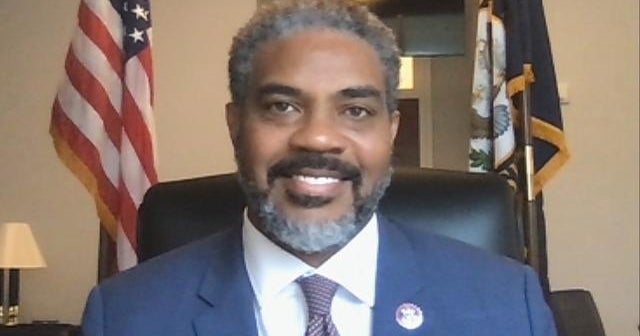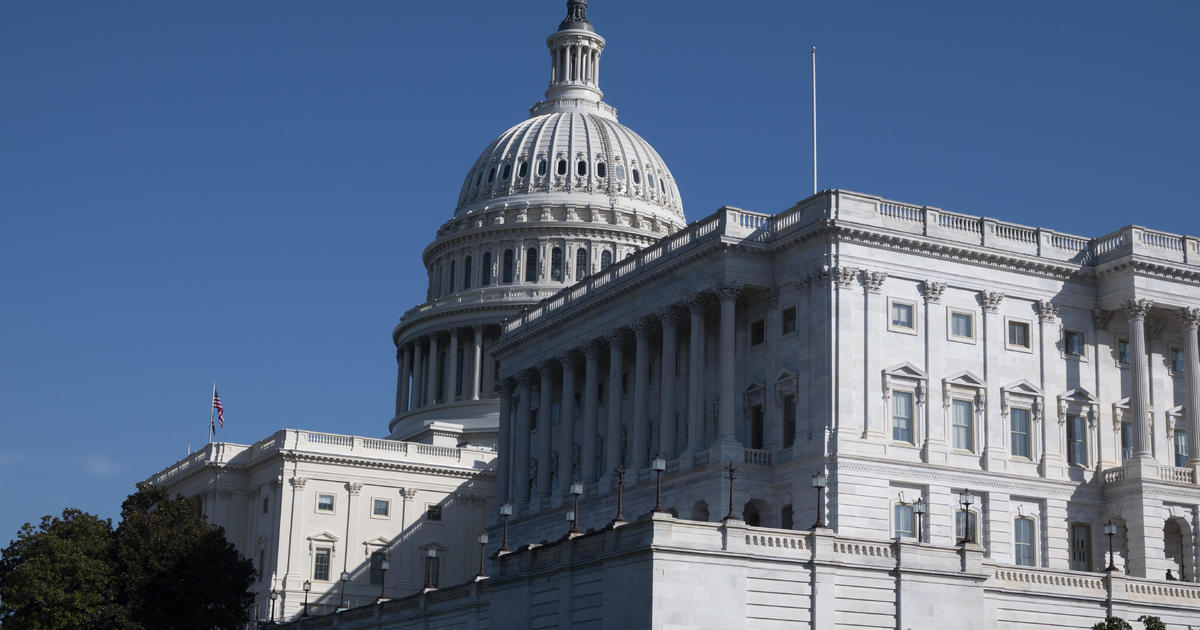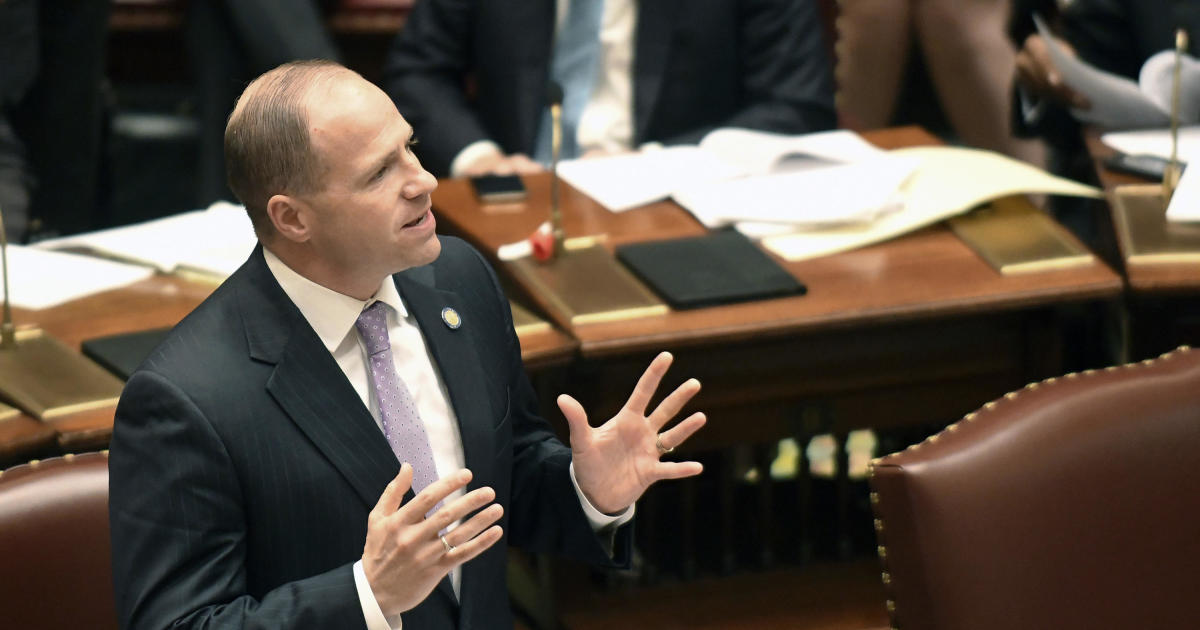"We get it done": Black women play key roles in South Carolina campaigns
While the presidential candidates crisscross the country chasing the Democratic nomination, it's the staff in the states who are running the campaigns on the ground. In South Carolina, this cycle, many state directors and top staffers are also part of a key voting bloc in Saturday's primary: African American women. These staffers decide which communities to engage and how to pitch them and get feedback from voters on the issues that will have the most impact on the campaign.
It's rare for these state directors to sit down for interviews, but during the campaign, several of these women sat down for a conversation with CBS News exclusively:
* Alycia Albergottie, Elizabeth Warren's South Carolina state director
* Jessica Bright, Bernie Sanders' South Carolina state director
* Rosalyn Glenn, Joe Biden's South Carolina coalitions director
* Tiffany James, the black engagement director for Pete Buttigieg
* Christale Spain, the former state director for Cory Booker
They talked about how important it is to have black women in leadership roles, the issues that matter most to South Carolinians, and how they're working to combat voter disengagement throughout the state.
Black women leading presidential campaigns in South Carolina "might seem normal but it's not"
An estimated 60% of South Carolina's Democratic electorate will be made up of black voters in this year's primary and more than 50% of voters are expected to be women. Democratic politics is in the bloodlines of Jessica Bright from the Sanders campaign. She's the daughter of South Carolina State Senator Margie Bright Matthews. For years, black women have been the backbone of the Democratic Party here, she pointed out.
"They have been the ones that have been rallying, organizing, and they haven't even gotten much shine," said Bright, who is a Walterboro native. "We're really standing on the shoulders of all those women that have been in the Democratic Party that have worked hard and haven't gotten any recognition."
Alycia Albergottie from the Warren campaign is a Columbia native and said the number of women and people of color in leadership positions is unprecedented.
"I'm actually happy to see so many folks in this role. It might seem normal, but it's not," said Albergottie, who also served as the South Carolina state director for Hillary Clinton's general election campaign in 2016. "This is the most people of color and women that I've seen working in high levels on campaigns, and I think it's important, especially here in South Carolina."
Rosalyn Glenn, who works for Biden, celebrated the trend. "The things that we do, the strength that we have, the energy that we bring to get it done wherever - whether it's in the boardroom, whether it's in politics, whether it's at home with our families, we get it done," said Glenn. "We aren't surprised by what we're doin', you know. This is what we have always done. The world is just now catching up to see what we bring. "
"I think we're finding our own voice," Glenn added. "Now we're saying, look, we are doing the work, you guys are gonna take notice that we're doing the work, and we are going to get in the door, and we're here to stay. We're not goin' back."
It's been a challenge to "give people hope again"
In 2016, only 12.6% of registered voters in South Carolina voted in the Democratic presidential primary, almost half the number of voters who turned out in 2008. In the general election, Donald Trump won South Carolina with 54.9% of the vote. One of the persistent challenges in mobilizing Democrats in South Carolina is voter disengagement.
"People are tired...they don't want to get engaged in the campaigns. We're trying to get them to go knock doors and make phone calls and help us out because we've got to mobilize everybody," said Glenn. "That has been a challenge to kind of give people hope again...trying to keep them engaged and away from that sense of hopelessness like there's nothing."
"I hear sometimes-especially at churches-you see a candidate when they're running, but then you don't see them again until it's time to run again and you hear that in neighborhoods as well" said Tiffany James, from Buttigieg's campaign. "Throughout our community, you hear people say, 'Oh, this is just talk,' because nothing ever changes."
Christale Spain, the former state director for Cory Booker, who is also the former executive director of the state's Democratic primary, echoed James' sentiment that voters feel taken advantage of and in some cases feel they didn't see the change they were promised by President Obama. Spain said a lot of her role was to educate voters on why continuing to be a part of the political process is vital, even if they've lost some faith in government. "Voting for the president is great, but if you want to implement some of these-some of these policies, you've got to vote for your governor, you've got to vote for county council."
"We have to figure out a way to make the people in this country understand that we are this country. We make it up. And here in South Carolina in particular, we can decide," said Glenn. "Our community, if we can figure this thing out and get on one page, we can decide every office, every seat, every time."
What matters?
Healthcare, equal pay, climate change, access to public transportation — "all of the things that matter to everyday people, matter to us," these women leaders all agreed.
Acknowledging that sometimes campaigning can be a shallow endeavor, Glenn said, "We tend to use them as buzzwords because we don't drill down, because we don't have the time to drill down into them, but they are real issues that women care about."
Public transportation is also a social justice issue that sometimes escapes notice, said James who used to be a public relations specialist for a local bus system. "You can have healthcare, you can have education, you can have all the resources but if you can't get to the hospital, if you can't get to your college or to your school, can't get to the grocery store, then you really don't have that," she said.
In the past five years, parts of South Carolina were ravaged by Hurricanes Matthew (2016) and Florence (2018). In the Lowcountry region, Bright said climate change isn't just a buzz word.
"Anybody that is from the coastal region, that's something that's easily broken down because whenever the storms come in, and if I'm a low-income person, that means I don't work," said Bright. "I know personally friends and family that have been out of power for weeks whenever these storms come…people of color care about climate change because you know, that's the narrative that they probably don't want to push nationally but we do."
Demographics of "the black vote"
"The black vote is not monolithic" has become something of a catchphrase here. Albergottie, Bright, Glenn, James, and Spain broke down who "the black vote" comprises in South Carolina.
"I think it's everybody. I mean, it's black men, it's black women, young, old, young professionals, older professionals, faith leaders, it's everybody," said Spain.
"Even the [black people] in our LGBTQ community, they need a platform a voice in this election," added Bright. "I really want to make sure we lift the black LGBTQ community because they often get lost in the whole shuffle of the black vote."
James added that black people with disabilities are often left out of the conversation.
"We have a variety of folks that live here in the state. So I think that's why it's a little bit harder just to put something in one…category of how are we going to reach those groups of people," concluded Albergottie.
Who are your role models?
"The person that has, that motivates me and that is my guiding post is my mother, Senator Margie Bright Matthews," said Bright. "I look at her journey within politics and without and kind of use that as a guiding post for me."
Albergottie said it "isn't just one person," and she draws inspiration from many of the women leading the campaigns here now, many of whom embarked on political careers at around the same time.
"This is really unique that people are giving us these platforms to stand on and giving us these positions," she said. "We don't know too many other folks who were before us, so we are those folks, so a lot of times, we're modeling after each other as we're growing together."



